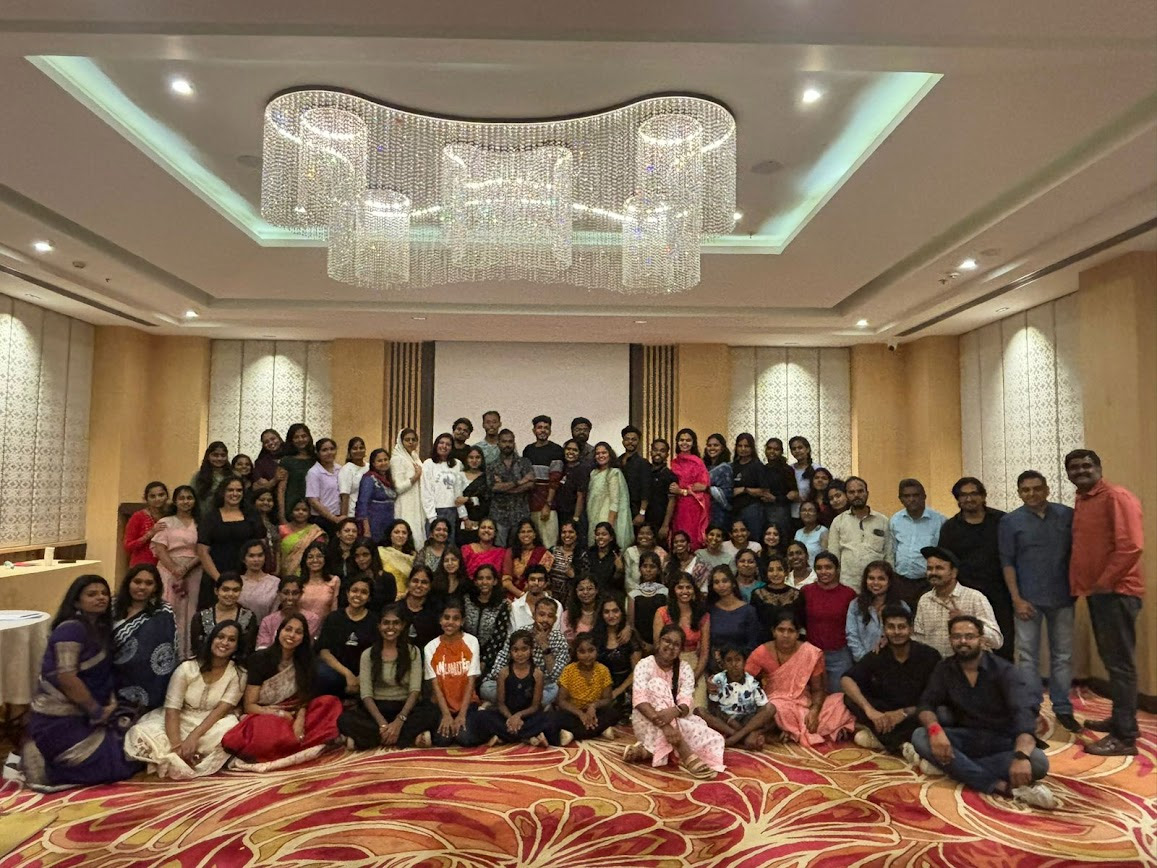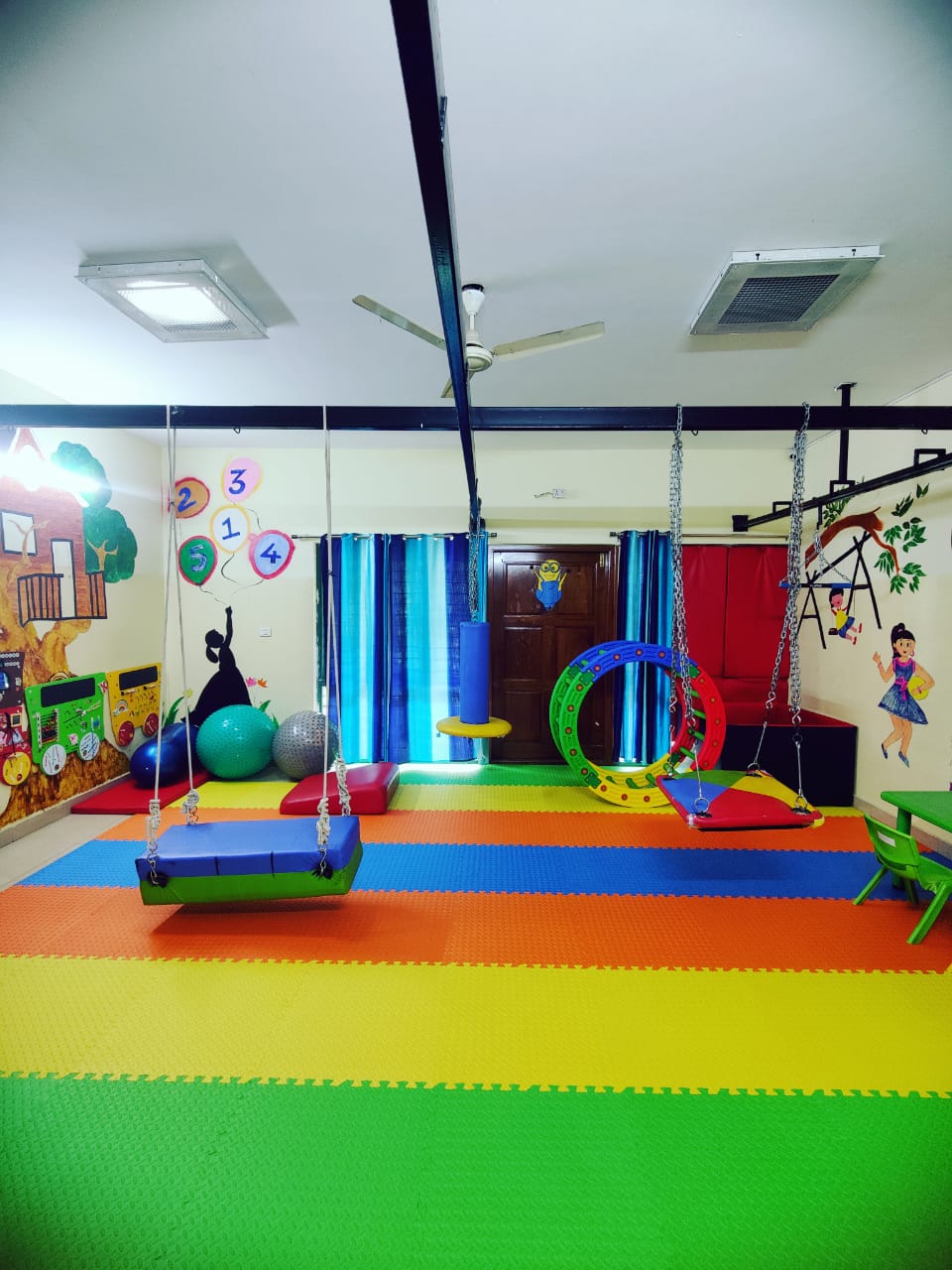
Amritha K Is Changing The Landscape For Children With Special Needs And How
Amritha K, Managing Director of Stepping Stones Centre in Bangalore, is on a mission to transform education for children with autism and other developmental disabilities. Her vision is simple yet powerful which is to build an inclusive India where every child has the right to education, regardless of their neurological or developmental challenges.
From Engineering To Education
Amritha’s background is quite different from the work she is doing today. She completed her computer science engineering from Anna University, Chennai, graduating in 2009 as a gold medallist. Following her graduation, she worked for nearly three years in an IT company in Chennai.
“When we shifted to Bangalore, I had my daughter, who was 11 months old at the time. I decided to take a year off to enjoy parenthood,” Amritha recalls. But during this break, her life took a turn when she visited an NGO called Spastic Society of Karnataka.
It was here that she first encountered a child who deeply caught her attention. “He was not looking into my eyes during conversation, had many behavioural challenges, and his language skills were limited compared to other children,” she says. This experience sparked her curiosity and motivated her to learn more.
Understanding Autism and the Need for Inclusive Education
Amritha soon discovered that the child was diagnosed with autism spectrum disorder, a neurological disability. “I did a lot of research and learnt that the number of children impacted by autism in India is increasing every year,” she says.
What troubled her most was the difficulty these children faced in getting admitted to regular schools. “Schools were reluctant to admit children with behavioural challenges, denying them access to mainstream education,” she explains. This exclusion contradicted her belief that education is a right, not a privilege.
1
2
3
4
Don't Miss: Anupama Bhat On What Inspired Senior Citizen-Focused Tamanna Wearables: 'Happened To My Parents...'

Driven by her conviction and childhood dream of building a school, Amritha decided to create a learning space specifically for neurodiverse children. “Instead of a regular school, I wanted to help children with challenges who find it difficult to get into mainstream schools,” she says.
Thus, Stepping Stones Centre was born, focusing on children with autism and other developmental disabilities. Today, the organisation serves over 235 children across Bangalore in partnership with seven mainstream schools, including CBSE, ICSE, IB, and Montessori institutions. “Our vision is to help such children be part of regular classrooms with therapeutic support,” Amritha explains.
Offering Comprehensive Support Through Multidisciplinary Programmes
Amritha emphasises the importance of a holistic approach. Stepping Stones Centre started with Applied Behaviour Analysis (ABA) therapy, an evidence-based behaviour modification technique for children with autism who often face behavioural challenges due to limited language and social skills.
“In 2013, when we started, ABA was our first programme,” she shares. “Then we added speech therapy, occupational therapy, and other services to form a multidisciplinary programme.” This integrated approach is crucial because children with neurological challenges often face linked difficulties in behavior, motor skills, and academics. “You need a team of experts, behaviour therapists, speech therapists, occupational therapists working together to provide comprehensive support,” Amritha explains.
Making Therapy Accessible for Families
One major challenge families face is the logistics of accessing various therapies. “In a city like Bangalore, commuting between different specialists is very challenging for parents,” she says. By bringing all services under one roof, Stepping Stones Centre makes it easier for families to support their children’s progress without added stress.
Starting as a small centre, Stepping Stones has grown significantly. Now, with one main child development centre and seven partner schools, the organisation reaches close to 240 children. “The progress we’ve seen in the children’s behaviour, language, and social skills is very encouraging,” Amritha notes. “Year after year, we have been able to add more specialists and expand our services based on the children’s needs.”
How Stepping Stone Centre Is Changing the Landscape for Children with Special Needs
Amritha K vividly recalls a tragic incident: a mother of twins, one neurotypical and the other with developmental delays was denied school admission for her neurodivergent child. Overwhelmed and unsupported, the mother took the child’s life.
“No parent should ever be pushed to that point,” Amritha says. “We, as a society, failed that child and that mother. The emotional burden families carry is enormous—and it’s rarely spoken about.” This moment reinforced Amritha’s mission: to create a world where early intervention is accessible, support systems are integrated, and inclusion is a lived value, not a checkbox.
Challenges That Amritha Faced
The hardest part of this work, Amritha says, is helping parents come to terms with their child’s neurodivergence. “Many parents assume their child will be neurotypical. So when something seems different—like a child suddenly stops talking—it’s very confusing and painful,” she explains. Conditions like autism can involve regression, where children lose previously acquired skills. But the longer families stay in denial, the more precious time is lost.
“The brain’s plasticity is highest between 0 to 6 years. That’s our golden window for intervention,” she says. “Missing that window due to delayed diagnosis or denial can have lasting impact.”
Bridging the Gap with Schools and Skill Building
When mainstream schools either rejected children or lacked trained staff to support them, Stepping Stone Centre began partnering with inclusive schools. They set up on-site resource rooms to screen, assess, and support children.
Don't Miss: "Molecules, Marketing, And Musk: That’s My Journey," Says Fonzie Folksy Founder Ishita | Found Her
“Our special educators and therapists enter regular classrooms with the child. So they participate in sports, cultural programmes, group projects everything,” Amritha says. But not every child will follow the academic path, which is why Stepping Stone is now building vocational and life-skills programmes for adolescents who need alternate support systems.

India lacks properly trained and licenced professionals in the space of developmental and behavioural therapy. “I’ve seen people work briefly and then call themselves ‘therapists.’ That’s dangerous,” she says. “We’re dealing with live children—you can’t afford mistakes.”
To address this, Stepping Stone became the first centre in India approved by the QABA board (USA) to offer licensed certification in behaviour therapy. Their Applied Behaviour Analysis Technician (ABAT) certification is now offered to professionals, educators, and even parents. Amritha’s vision extends beyond Bangalore. She hopes to expand Stepping Stones Centre to other cities and states, creating more inclusive educational opportunities.
“Our dream is to build a community where no child feels left behind, and where all children have equal opportunities to learn and grow,” she says. “Education is not a favour, it is a fundamental right, and we must ensure every child has access to it.”
Keep reading Herzindagi for more such stories.
Herzindagi video
1
2
3
4